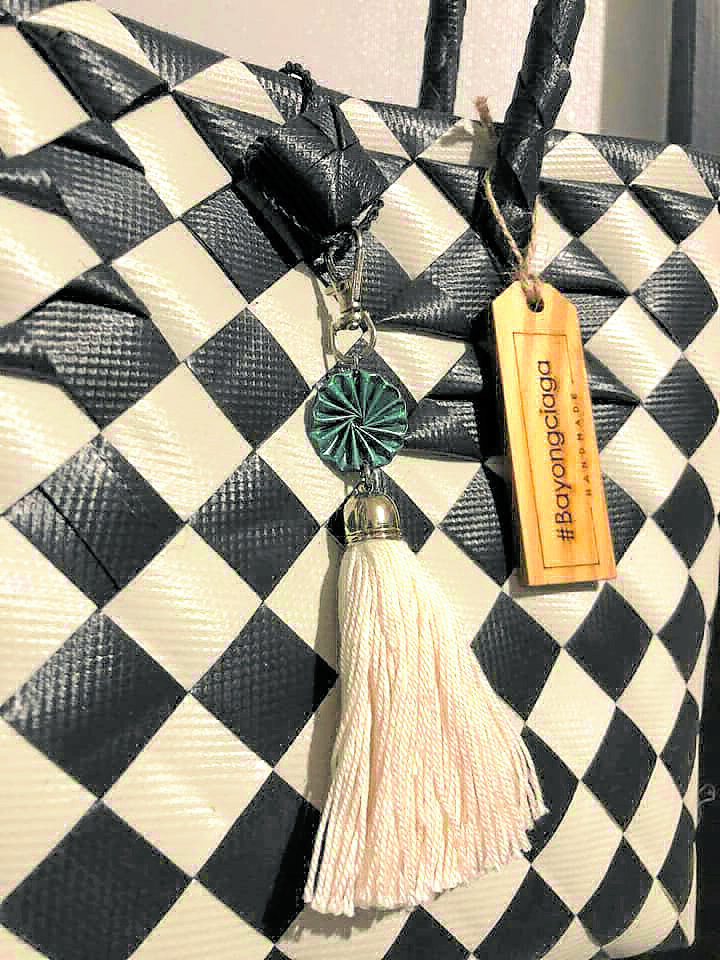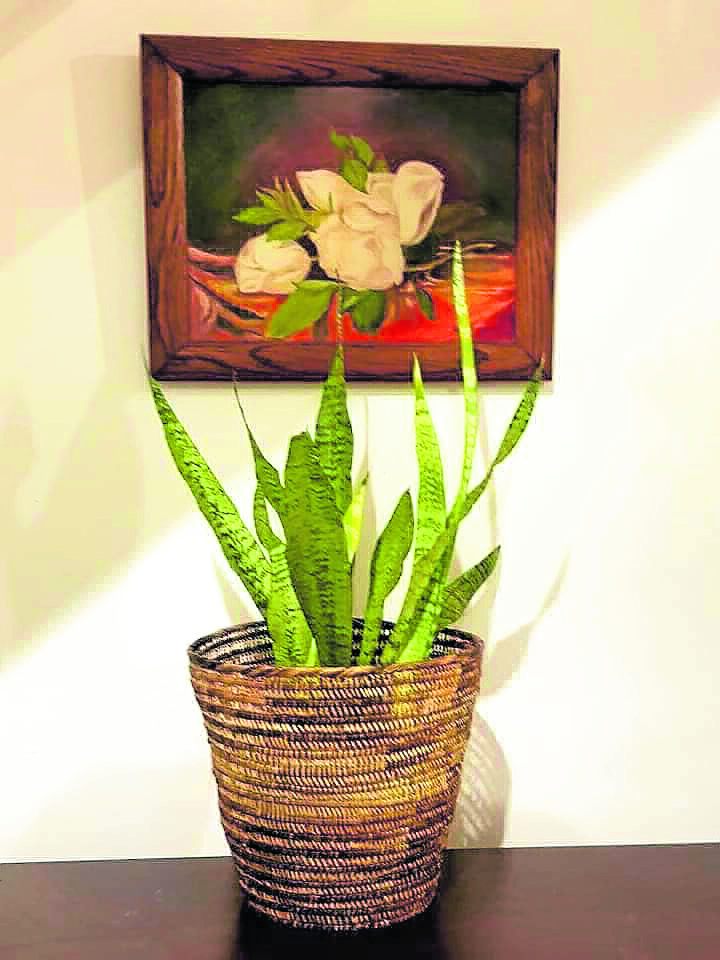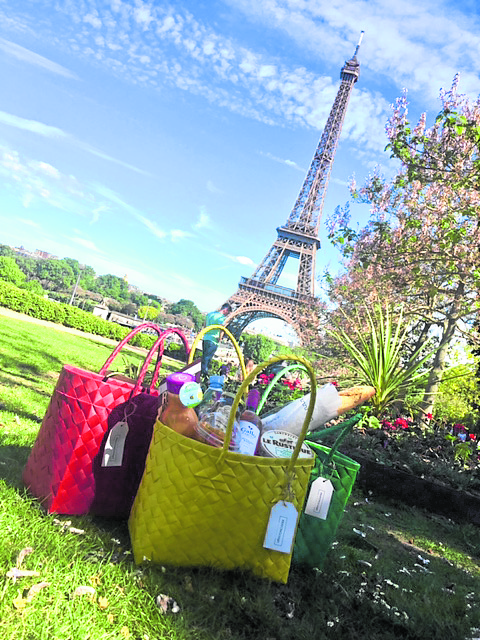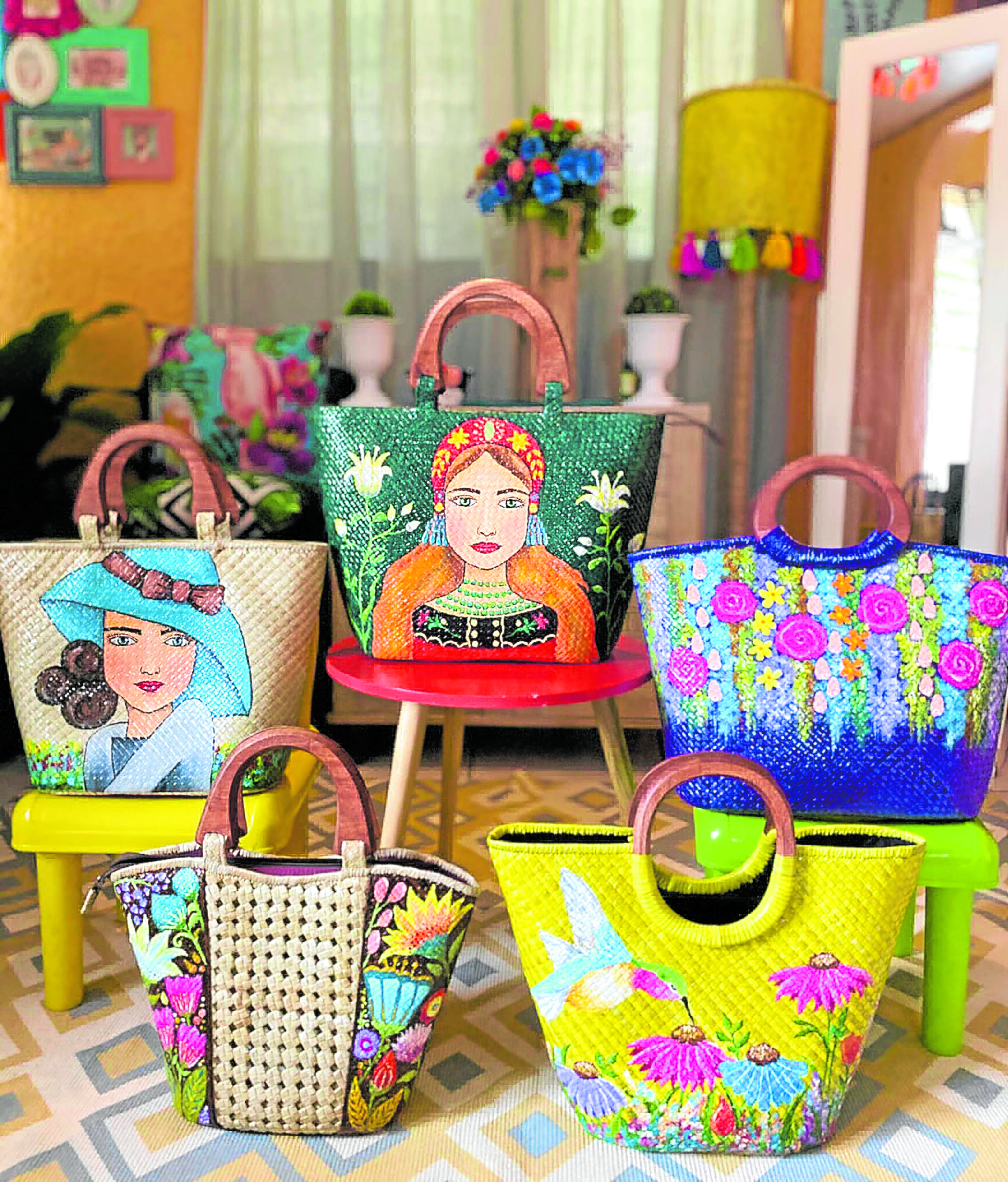‘Buyanihan’ spirit comes alive for MSMEs

Bayongciaga business partners Javier Villarruel (left) and Jovanni Ravago —PHOTOS COURTESY OF BAYONGCIAGA
If you’re wondering whether all the different “buy local” and “support local” campaigns have been working to the advantage of Philippine producers and merchants, just ask business partners Javier Villarruel and Jovanni Ravago—who’ll definitely answer with a resounding “yes,” as they have experienced firsthand just how helpful the Filipinos’ bayanihan spirit can be, especially amid a pandemic.
The business partners run Bayongciaga, a line of intricately designed bayong (handwoven native bags) made of materials such as buri leaves. As with other businesses selling nonessential products, community quarantine measures, especially the first one implemented in March, heavily affected Bayongciaga’s sales, Villarruel says, as well as their supply chain.
“We were really at a loss as to how to operate—how the weavers would send me the bags, and how I would send those to clients given that we weren’t on the list of essential items,” Villarruel recalls. “Imagine, weavers would send me the bags here in Makati, and would send them to [Ravago] to have them fitted with leather lining and straps in his province, Bataan, because we couldn’t go to Marikina anymore to source the leather. After, he would send back the bags to me.”
Despite these challenges, however, Villarruel says closing shop didn’t cross their minds because of one thing that is of the utmost importance to them: the livelihood of the weavers who manufacture the bags for them. Bayongciaga bags are created by weaving communities based in different provinces such as Laguna, Marinduque, Sorsogon, Naga, Palawan, Tanay and Negros, where Villarruel hails from.
“We had to help our weavers, so we worked with the bags we could come up with. There were some who experienced order cancellations [from other clients], so we decided to take those products in, too, and find those products a market,” Villarruel says.
Article continues after this advertisementOn the side of their consumers, Villarruel says Bayongciaga’s Facebook and Instagram communities have been extremely supportive of the brand’s efforts to provide assistance to weaving communities across the country.
Article continues after this advertisement
Bayongciaga piece accessorized with Coffee Capsule bag tassels by the Negros Volunteers for Change Foundation’s Artisans Livelihood Project
Such support has since enabled Bayongciaga to expand their product offerings. For the “plantitos” and “plantitas” who have discovered the joy of gardening while in quarantine, Bayongciaga now has nito (a kind of fern) planters sourced from Marinduque, as well as storage bins and organizers made of the same material. They have hand-painted bags that carry creations of artists from all over the country (Davao, Cagayan de Oro, Cebu, Negros, Cavite, Caloocan, Manila and Pampanga).
Buri bags and boxes for gifts are also being offered by the social enterprise, and, as an added service, they can do the packaging themselves for clients’ gifting needs. They spruce these up using Bayongciaga ribbons and gift tags (with dedication, if requested), and do the delivery, too, to make it convenient for customers, especially overseas Filipino workers, to send gifts to their loved ones.
Bag accessories and brooches made from recycled coffee capsules have also been made available by Bayongciaga through the livelihood programs Negros Volunteers for Change Foundation. Some of the bags are made by People Deprived of Liberty (“the politically correct term for prisoners,” Villarruel says), which gives them livelihood and helps them provide for their families.
Since its inception four years ago, Bayongciaga has always kept the bayanihan (community-building) spirit that’s unique to Filipino culture alive. Villarruel says he first fell in love with the bayong during a visit to Pagsanjan, Laguna, with friends.
“I saw it in a store and posted it on social media. A lot of my friends took interest, so I ended up buying all the items available,” Villarruel says.
He and Ravago became convinced of the viability of selling these bags, which come in quirky, colorful designs, when, during a trip to Paris, foreigners approached them to complement the bayong they were carrying.
The name started as a witty hashtag, and while it sounds like a pun on a designer brand, Villarruel explains that it actually reflects his Ilonggo roots.
“So it’s like, ‘Bayong sya, ‘ga,’ or ‘Bayong sya, palangga,’” Villarruel says. (Palangga means “beloved”).
Locally, there is also a growing appreciation for native products, Villarruel says.
“Even among young professionals, our bags are becoming a fashion staple. They use it as an extra bag, usually to carry things for work, like their laptop,” he adds.
As they continue to grow Bayongciaga, even amid a pandemic, Villarruel says their vision is “to be a one-stop shop for handwoven products of the Philippines.”
For the business partners, collaborations of any kind are welcome as they expand. Even now, Bayongciaga’s designs aren’t dictated by Villarruel and Ravago, but also incorporate input from the weavers themselves. “They are the ones who are truly knowledgeable about this. Everyone has his or her own expertise,” Villarruel says.
But what Villarruel and Ravago truly appreciate about Bayongciaga is how the business has enabled weavers to pass on their craft to the younger generation.“Now they teach their children who have become interested in weaving as well,” Villarruel says. “As long as there is a market, they will continue making these products.”


